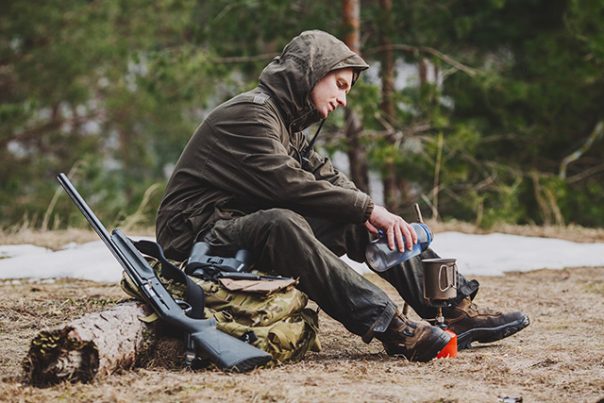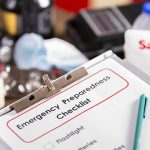
25 Survival skills that will help you survive after SHTF
Wednesday, October 20, 2021 by Divina Ramirez
http://www.naturalnewstips.com/2021-10-20-25-survival-skills-help-you-after-shtf.html

Every prepper knows that having the right gear and equipment when SHTF can greatly increase your chance of survival. However, your gear can only take you so far when SHTF if you’re clueless about basic survival skills.
Listed below are critical survival skills that will help you survive when SHTF: (h/t to TheSurvivalistBlog.net)
- Finding and collecting water – Nothing is more important in a survival situation than having water to drink. Humans can survive for weeks without food but only for a few days without water. Therefore, one of your top priorities when SHTF should be finding and collecting water.
- Purifying water – You can get sick drinking contaminated water, even if it’s from natural sources like rain, ponds and lakes. It’s important that you know the basics of water purification in order to ensure your survival. (Related: Water is life: 10 Ways to purify water when SHTF.)
- Managing waste – Without power, water services would stop, meaning there would be no water for flushing the toilet. It’s important that you know how to manage your waste because you could easily contaminate foods and put yourself at risk of contracting diseases if you don’t handle your waste properly.
- Concealing food stores – Essentials like food and water will be scarce when SHTF. You may find yourself targeted by thieves or gangs if you leave valuable resources out in the open. Know how to properly conceal your food stores.
- Setting up a quarantine zone – In case of an epidemic, it’s a good idea to set up a quarantine area in your home. That way, you can easily separate members of the household who get infected.
- Securing your home – You can’t take anything for granted when SHTF, and that includes your safety. If you live in an urban area, secure the rooms and entrances of your apartment or home. If you live in an apartment building, take note of service entrances or exits as well.
- Improvising weapons – Prepare for situations where you don’t have your weapons. Learn how to make improvised weapons from everyday tools or equipment so you can defend yourself and your loved ones from an attack.
- Making your home a dead zone – Sometimes, the best security plan is to make your home a dead zone or to make it look as if it’s empty. This might dissuade roving gangs from targeting your place or forcing an entry.
- Preparing an evacuation plan – Some situations call for immediate evacuation, such as an earthquake, a tornado or an electromagnetic pulse attack. In such cases, it pays to have an evacuation plan.
- Using a radio scanner – A radio scanner allows you to gather relevant and timely local information. But it would be useless if you don’t know how to properly operate it, so learn how to use a radio scanner before SHTF.
- Managing energy needs – For short-term power outages, it helps to know how to properly manage your energy needs so that your backup power sources don’t run out of juice before the power comes back on. This means knowing how much energy to allot for lighting up your house, for running appliances and for charging your electronic devices.
- Repairing equipment – Knowing how to fix a torn tent, repair a bike chain or replace worn fences can greatly increase your chance of survival when SHTF.
- Foraging for food – Familiarize yourself with edible weeds, berries and other wild plants. They could mean the difference between life and death if you’re stuck in the wild.
- Foraging for medicinal plants – Familiarize yourself with medicinal plants. There are lots of plants with potent healing properties. They’ll be handy for when you need to treat a wound or injury.
- Using non-lethal weapons – Not every situation requires the use of a lethal weapon. In some cases, you only need to deescalate the situation by using a non-lethal weapon like pepper spray.
- Using two-way radios – Two-way radios are useful for communicating with someone who is miles away. If you get separated from your group, a two-way radio can help you find your way back.
- Evading surveillance – In case of societal collapse, it pays to know how to evade surveillance in case you and your group become the target of roving gangs.
- Picking a lock – Knowing how to pick a lock makes you better equipped to help yourself and others.
- Improvising a lock pick – Knowing how to pick a lock won’t be of much help if you only know how to do it with a proper pick. Learn how to improvise a pick with everyday materials.
- Carrying gear – Your bugout bag can slow you down and compromise your security if it’s too heavy. See if you can pare down your gear list. If that’s not possible, consider other options for bringing gear, like using carts, dollies or wheelbarrows.
- Containing a fire – Knowing how to control a fire reduces the risk of it spreading and burning everything, from nearby shrubs to your makeshift shelter and gear.
- Preserving a fire – For chilly nights, it pays to know how to keep your fire going.
- Building a makeshift shelter – Tents are a luxury in a true survival situation. You’ll need to learn how to build a makeshift shelter from easily accessible materials, such as fallen branches, vines and dead leaves.
- Using a compass – You won’t have landmarks in the wilderness as you would in the city. In such cases, a compass will be extremely valuable. With a little practice, reading a compass can become second nature to you.
- Using a global positioning system (GPS) device – A smart way to lighten your load is to hide certain supplies along your route that you can retrieve later. This is called geocaching, and it is typically done with the help of a GPS device. Geocaching is more of a hobby for the average adult, but it can be quite valuable in an SHTF situation.
For more tips on how to survive when SHTF, visit Survival.news.
Sources include:
Tagged Under: Tags: bug out, Collapse, disaster, disaster preparedness, emergency preparedness, navigation, off grid, prepper, prepping, self sufficiency, self-defense, self-reliance, SHTF, survival, survival skills, survivalist, tips
RECENT ARTICLES


Why emergency preparedness must be a crucial part of your survival plan

Portable heater fuel: Is kerosene better than propane?

Survival first aid: How to treat snake bites

Understanding prepper speak: Important acronyms and definitions
By Zoey Sky
COPYRIGHT © 2017 NATURAL NEWS TIPS


